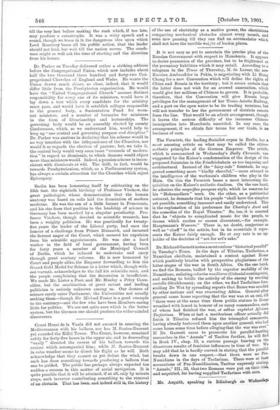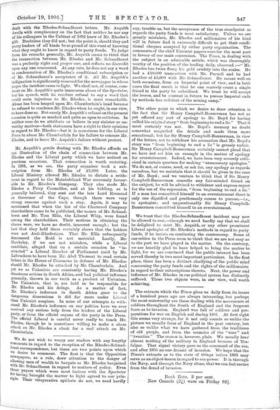Mr. Asquith, speaking in Edinburgh on Wednesday. dealt with the
Rhodes-Schnadhorst letters. Mr. Asquith dwells with complacency on the fact that neither he nor any of his colleagues in the Cabinet of 1892 knew of Mr. Rhodes's gift. Doubtless they did not; but the point is, should they and party leaders of all kinds be so proud of this want of knowing what they ought to know in regard to party funds. To judge from his remarks generally, Mr. Asquith seems to think that the transaction between Mr. Rhodes and Mr. Schnadhorst was a perfectly right and proper one, and reflects no discredit upon any one concerned. At any rate, he does not say a word in condemnation of Mr. Rhodes's conditional subscription or of Mr. Schnadhorst's acceptance of it. All Mr. Asquith's indignation is significantly reserved for the newspaper in whose pages the incident came to light. We shall not, of course, com- ment on Mr. Asquith's quite innocuous abuse of the Spectator, but his speech, with its resolute refusal to say a word that could seem injurious to Mr. Rhodes, is most remarkable. Abuse has been heaped upon Mr. Chamberlain's head because he refused to condemn Mr. Rhodes when he ought, in our view, to have done so. But surely Mr. Asquith's refusal on the present occasion is quite as marked and quite as open to criticism. In neither case do we attribute or believe in any sinister or an- worthy motives—both statesmen have a right to their opinions in regard to Mr. Rhodes—but it is monstrous for the Liberal Press to abuse Mr. Chamberlain for his failure to censure Mr. Rhodes, and to leave Mr. Asquith's failure without protest.















































 Previous page
Previous page